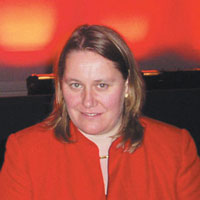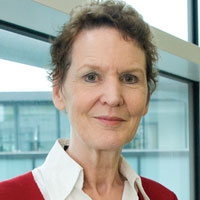Time waits for women
Pharmacy’s most powerful women evaluate progress in the last 20 years on unequal pay and management roles for women
A young, female pharmacist starting out in 1994 would have faced many of the same challenges as her counterparts today. Passing regular assessments, building good working relationships and learning how to make difficult decisions would have all been part of the job. But she may have hoped that, 20 years later, women in pharmacy would no longer have to face inequality at work – whether it be unequal pay or under-representation in senior management teams.
On the face of it, these challenges are yet to disappear. Just a quick glance at C+D's Pharmacy 50 survey last summer reveals that men vastly outnumber women in the power stakes (chemistanddruggist.co.uk/pharmacy50). And the C+D Salary Survey (chemistanddruggist.co.uk/salary-survey). consistently suggests there is a pay gap between men and women doing exactly the same job.
This poses the question: have women really achieved further equality in the profession over 20 years and is there any hope for progress?
A ‘pretty bleak picture'It is undeniable that men still dominate certain areas of the pharmacy sector today – a fact that hasn't escaped Deborah Evans, leader of the healthy living pharmacy programme. "There are a few women in senior leadership positions but I think, as far as community pharmacy is concerned, it's a pretty bleak picture," she says. "We still don't have a high representation of women. We've got to change that."
She believes it's unacceptable that she and other female leaders only made up a fifth of the C+D Pharmacy 50, when women outnumber men three to two in the profession overall. Ms Evans thinks the trend may be something to do with the nature of the pharmacy sector. "We've got strong female leaders in academic positions and in primary care, so there is something about these environments that might be more encouraging of female leaders [than others]," she says.
Mimi Lau, director of pharmacy services at Numark, believes corporate environments also enable women to flourish. "When I started working in the multiples, there was a good balance of male and female pharmacists and I don't think that has changed. I have certainly seen more women come through in the past 20 years," she tells C+D.
But Helen Darracott, director of legal affairs at the Proprietary Association of Great Britain, thinks the situation has actually worsened for women over the past two decades. Although there are women in senior positions today,
she believes they are not as high profile as they once were. "We don't have politically active women in the way we once did," says Ms Darracott. "There are opportunities there and women are taking them but they're just not visible."
Pay is another area where progress appears slow. In the C+D Salary Survey 2013, the average salary reported by male full-time community pharmacy branch managers was £3,539 more than women in exactly the same position. This isn't progress. In 2012, the reported pay gap for the same role was almost identical at £3,434.
Ms Darracott says there is no excuse for the gender pay gap suggested by the figures. "If you've got the same experience, you're doing the same job and you're evenly matched, you should get paid exactly the same," she stresses. The National Association of Women Pharmacists (NAWP) also argues the pay gap has not narrowed enough over the past 20 years.
A multitude of factorsSo, if women haven't progressed as hoped since 1994, what has held them back? Men and women's different working styles appear to be one factor. "Women tend to be more patient-orientated than management-orientated," says Hazel Baker, secretary of the NAWP. "Men are more apt to shout about their achievements, whereas women get on with the job in hand."
Catherine Duggan, director of professional development and training at the Royal Pharmaceutical Society (RPS), believes the problem is more complex than a gender divide. "We don't celebrate quiet leadership. There are a lot of women and men who don't see themselves as leaders," she says. So is this problematic when it comes to finding female role models in the industry? Potentially. She says: "I think it's really important for men and women to see each other as role models, but it is also important for women to have role models they can emulate."
Childcare condundrumThe tendency for women to take on the lion's share of childcare responsibilities is another factor. Once they come back from maternity leave, their pay may never catch up with that of men, points out the NAWP's Ms Baker. "It is possible that they are still perceived as working part-time," she says. There is also a chance they will take a longer career break to bring up their family, she adds.
But Ms Lau believes the pharmacy sector is better than others when it comes to balancing work commitments with family life. She points out that many pharmacy employers offer flexible working hours and enable women to "go back in and do a few days" when they are struggling to combine the two. "If you're a pharmacist looking in, I think you would be encouraged," she says.
Superdrug's superintendent pharmacist Christine Burbage believes there are potentially more opportunities for women to combine a successful career with children at the multiples. "I think bigger companies have more formalised career structures and I think women now recognise that if you want to have a break for a family, you can still have a career," she argues.
Leyla Hannbeck, head of pharmacy services at the NPA, thinks developments in childcare and maternity will be pivotal to women's progress in the sector. She hails new legislation enabling women to share parental leave with their partners as a positive development. Measures such as this, she believes, will give "everybody the opportunity to progress". "I think we're a female-dominated profession so we need to be open about [these issues] – for example, many men would like to be at home caring for children but we don't talk about this either," Ms Duggan points out.
Attitude problemFor the next 20 years, the determining factor in women's progress may well be attitude. In the past, the attitudes of others were a common barrier for professional women. Now, women in pharmacy cite the attitude of the individual as a more important factor. Ms Hannbeck believes it comes down to how hard the person is willing to work. "I see dedicated people from both genders. They need to balance their work life with their personal life and build a career map," she advises.
Superdrug's Ms Burbage agrees that today's women have control over their own careers. "There are lots of opportunities out there and it is up to the women themselves. I don't think the attitude towards women has changed – I think the attitude of women has changed," she says.
RPS's Ms Duggan suggests that powerful females in the sector should take it upon themselves to inspire the next generation of pharmacists. "I don't think we should leave mentoring for someone else to do, we should set it up ourselves," she argues.
"People need stories from individuals like me so they can understand the things that are tricky. Everyone learns lessons from narratives and I think the sense of optimism about the future is for us to create," Ms Duggan stresses.
Clearly, there is still work to be done within the industry to ensure there are more women filling senior positions and to diminish the gender pay gap. As Ms Lau says, there is "still some way to go" in gaining true equality between men and women in pharmacy. Hopefully, improved maternity policies and the determined attitudes of women in power will be a significant step towards levelling the playing field.
So can a young female pharmacist preparing to start her career feel optimistic about what the future might hold? The resounding answer is yes. "I think there is a willingness to do something about the under-representation of women," says Ms Evans. "The purpose of this is to encourage young female pharmacists to work in community pharmacy."
"I'm optimistic in 20 years time it's going to get better and better," echoes Ms Hannbeck. "I don't think anything can stop women getting to where they want to be."

Helen Gordon
Chief executive, RPS Rank in Pharmacy 50: 4 Ms Gordon took the helm of the RPS as it made its transition from regulator to newly formed professional body. She has led the organisation through a rebranding exercise that has brought it closer to being a collegiate leadership body for the pharmacy profession.

Jeanette Howe
Head of pharmacy, Department of Health Rank in Pharmacy 50: 6 Behind the scenes at the Department of Health, Ms Howe has worked to shape the pharmacy contract and responsible pharmacist regulations, as well as influence policy on areas such as workforce planning, education and training.

Catherine Duggan
Director of professional development and support, RPS Rank in Pharmacy 50: 9 Passionate about developing the profession, Ms Duggan led the launch of the RPS faculty last year, which aims to help pharmacists structure their career path and training.

Sue Sharpe
Chief executive, PSNC Rank in Pharmacy 50: 13 A face familiar to most in the sector, Ms Sharpe works to negotiate pharmacy funding with the newly formed NHS England and led the introduction of the 2005 contract.



